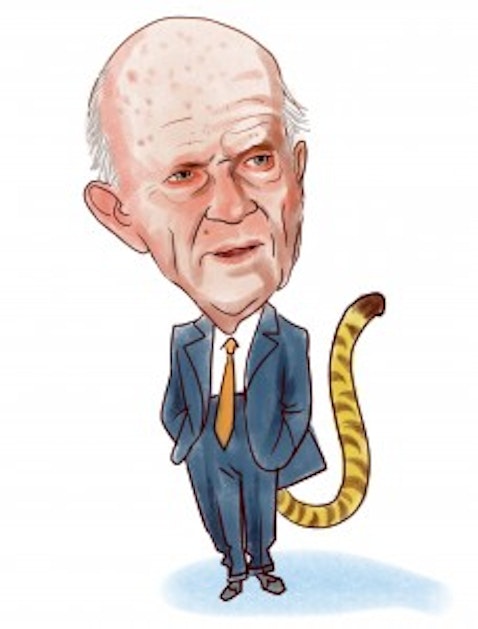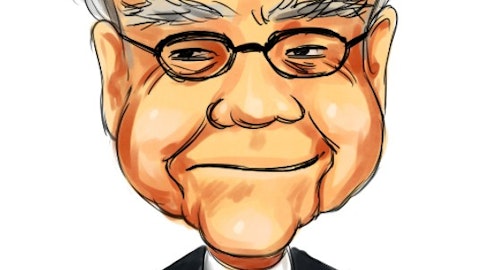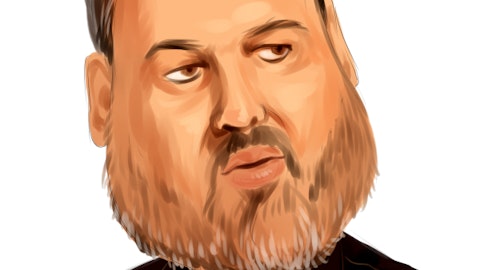
What’s not particularly clear is his investment style, which has been characterized by a “smart idea, grounded on exhaustive research, followed by a big bet.” That is not much practical direction to go on but what is striking about Robertson and other successful hedge fund managers is their willingness to pull the trigger when they have high conviction. Indeed, a former Tiger Management executive notes that “When Robertson is convinced that he is right, Julian bets the farm.” His investment style is also known for being very personal; at Tiger, Robertson would listen to his analysts for ideas and input but make all the investment decisions himself.
And in fact, his former analysts have gone on to run some of the top performing hedge funds in the industry, spawning a generation of “Tiger Cubs” and “Tiger Grandcubs,” many of which were seeded by Robertson. Some of the better known cubs include Tiger Global run by Chase Coleman, Blue Ridge Capital run by John Griffin, Maverick Capital run by Lee Ainslie, Viking Global run by Andreas Halvorsen, and Lone Pine Capital run by Stephen Mandel. Robertson also has a part in the Tiger Accelerator Fund, which invests in six Tiger-seeded hedge funds. He is investing $250 million of his own capital (chump change for guy with a $2.5 billion net worth) on top of the $450 million raised from other investors. The six funds are Tiger Eye Partners, Long Oar Global Partners, Tiger Ratan Capital, Cascabel Management, Tiger Veda Management, and Teewinot Fund. In total, Robertson seeds over 40 funds.
Top 10 Holdings:
| Company | Ticker | Value ($000s) | Activity |
| APPLE INC | AAPL | 53,174 | 29% |
| GOLDMAN SACHS GROUP INC | GS | 31,225 | 9% |
| MASTERCARD INC | MA | 22,286 | 29% |
| LIBERTY GLOBAL INC | LBTYA | 20,412 | 0% |
| GOOGLE INC | GOOG | 20,226 | -13% |
| VISA INC | V | 20,007 | 21% |
| WUXI PHARMATECH CAYMAN INC | WX | 15,607 | -25% |
| QUALCOMM INC | QCOM | 14,703 | 0% |
| P N C FINANCIAL SERVICES GRP INC | PNC | 12,711 | 49% |
| WELLS FARGO & CO NEW | WFC | 12,659 | 57% |
Though Roberston’s new picks did not make it into his top holdings, they include healthcare REIT HCA Holdings (HCA), Starbucks (SBUX), Sherwin Williams (SHW), Verisign (VRSN), and XPO Logistics (XPO). He added substantially to Apple (NYSE:AAPL), Mastercard (NYSE:MA), Visa (NYSE:V), PNC Financial Services (PNC), and Wells Fargo (WFC), remaining heavily weighted in Technology, Financials, and Consumer Services. He commented that electronic transactions “are still a relatively small percentage of transactions. With the concept of the mobile wallet gaining traction, we think there are opportunities for MA and V to enter into the mobile payments market. Though most companies are well-positioned to continue to growth, we like Visa’s collaboration with Google Wallet/Isis. Meanwhile, MA is in the midst of the merchant litigation lawsuit, which we would rather wait out.
HCA continues to be a strong performer in the hospital business but we think that Tenet (NYSE:THC) is being underestimated by the market. If THC’s Conifer division is able show compelling performance next quarter with the Catholic Health Initiatives (CHI) contract, we think that that earnings acceleration is just one quarter away. Robertson also pared down positions in Google (NYSE:GOOG) and Chinese pharma company Wuxi Pharmaceuticals (WX). This is an interesting move. Google is the second most popular stock among hedge funds, catching up with Apple (see the 10 most popular stocks). Tiger cubs Chase Coleman and Andreas Halvorsen reduced their Apple positions and increased their Google positions during the first quarter. We don’t think these moves signal anything negative about these stocks. Apple and Google are two tech giants with high growth rates and low price multiples. Investors are unnecessarily cautious about these two stocks and we think they will be long-term winners.





